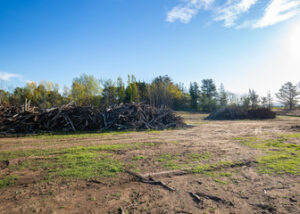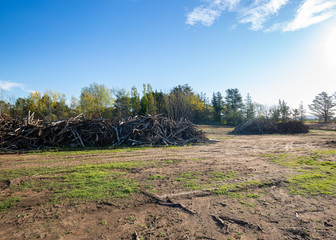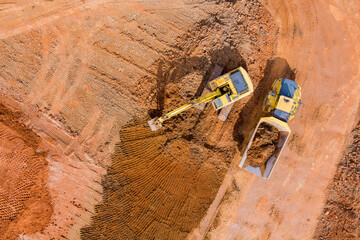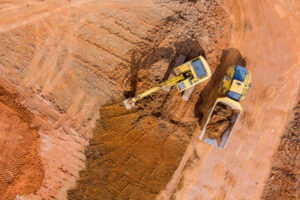Land Clearing Hays County is the process of removing unwanted trees, brush, and other vegetation from your property. This can be done for a variety of reasons, including improving safety and accessibility on your property.
It can also reduce the risk of fires, as dead and accumulated debris often act as fuel. In addition, cleared land is usually more visually appealing and can increase property value.
Accessibility is a critical part of land clearing, whether you’re preparing your property for construction, landscaping, or improving its usability. By removing trees, stumps, brush, and other obstacles, you can create clear pathways for vehicles and equipment to move throughout the area. This can reduce the risk of accidents and injuries caused by tripping hazards or falling branches. In addition, it allows for easier and more efficient land development and construction, as well as improved forestry management.
In addition to improving accessibility, land clearing can also increase the value of your property. A well-planned and professionally executed clearing project can transform a barren or cluttered property into an attractive and usable space. Cleared properties can be used for a wide range of purposes, including recreational activities, agriculture, and construction. In addition, they are often easier to maintain and care for than undeveloped sites.
Regardless of your land use goals, it’s important to choose the right land clearing technique based on its size, type of vegetation, and long-term goals. For example, if you’re preparing your land for construction, using a mechanical or grubbing clearing process may be the best option. These processes remove all vegetation, including roots and stumps, ensuring that the land is ready for construction. They also eliminate the need for manual labor, which can save time and money.
Land clearing is a necessary step in any construction project, from digging trenches for sewage to laying electricity lines. It provides a clean slate for builders and civil engineers, reducing the risk of delays and complications. It’s also essential for constructing roads and infrastructure projects.
In addition to facilitating construction, land clearing can help restore wildlife habitats. By removing invasive plants and trees, clearing allows for the growth of native species and a more balanced ecosystem. This can also help prevent the spread of fire-prone areas and provide a safe environment for people to enjoy.
Value
Many people are curious to know whether clearing land increases property value. It certainly does, as it makes the property more attractive and usable to potential buyers. Additionally, it makes it easier to build a home or run utility lines on the property. It also helps protect the property from wildfires by removing fuel sources such as brush and dead trees. This is especially important in fire-prone areas.
The type of terrain and vegetation on the property will have a significant impact on the cost of land clearing. For example, dense vegetation and rocky terrain may require more time and equipment to clear. Additionally, the presence of endangered species or other sensitive areas may require additional planning and compliance with local regulations. These factors will increase costs and may impact the scope of the project.
Regardless of the size and scope of your land clearing project, hiring a professional is always a good idea. They will have the expertise and resources needed to complete the project quickly, safely, and efficiently. Additionally, they will be able to recommend methods that will minimize the environmental impact and ensure compliance with all relevant regulations.
Clearing land is an essential first step in construction projects, ensuring that building plans are fully realized. It removes debris, such as trees, stumps, and brush, as well as other obstacles that could interfere with the construction process. It also helps to ensure proper grading, drainage, and soil stability, all of which improve the overall appearance of the site.
Land clearing can also add to the appeal of your home, as it creates more space for landscaping and other activities. It can also make your property more attractive to potential buyers and help you sell it at a higher price.
Clearing land can be a costly and time-consuming endeavor, but it is a necessary part of any development project. Whether you are developing residential or commercial land, it is crucial to have the right land clearing services in place to ensure the best possible outcome. By choosing a reputable company that offers a variety of services, including dirt work, land clearing, and forestry mulching, you can ensure a hassle-free project with optimal results.
Environmental impact
The environmental impact of Land Clearing can vary depending on the method used and the size of the project. For example, clearing large areas of vegetation with bulldozers or other heavy equipment can damage the environment by removing valuable plant species and causing erosion. In addition, these machines may leave behind traces of pollution that can affect nearby waterways and lakes. Land clearing using sustainable methods, however, can minimize these effects and reduce the need for machinery.
Sustainable clearing practices can also benefit local wildlife by reducing disruptions to animal habitats and ecosystems. For instance, techniques like forest mulching encourage regrowth of native plants and improve the soil quality. In addition, they can help control soil erosion, which can lead to a loss of fertile topsoil and contribute to water pollution by carrying sediment into rivers or streams.
Moreover, sustainable clearing can also help protect homes and businesses by decreasing the risk of wildfires. Overgrown debris and dry brush act as fuel for wildfires, putting lives at risk and damaging property. Land clearing can reduce the risk of fires by removing dead or overgrown trees and shrubs.
When performed properly, land clearing can make your property more attractive and increase its value. Overgrown properties can look unkempt and uncared for, which can deter potential buyers or tenants. Land clearing can also reveal hidden natural features like streams or unique trees that you can incorporate into your landscaping design.
Land clearing is a great way to maximize the use of your property and prepare it for construction, farming, or recreational uses. However, it’s important to choose a professional company that can provide sustainable clearing services. The right team will ensure that the process is safe for both the environment and your property, and they will work to preserve the ecosystems of your surrounding area.
A well-planned project will begin with a thorough site assessment and a detailed plan. It will also include an inspection of the land to identify any wildlife and vegetation that might be affected by the clearing process. Then, it will recommend the best methods for preserving biodiversity and minimizing soil degradation. It will also address any legal requirements, such as permits or clearances. In addition, it will be important to time the clearing process outside of nesting or breeding seasons to avoid disrupting animal populations.
Safety
Land Clearing involves removing overgrown vegetation, trees, and debris to prepare a site for construction. It is a critical first step for both residential and commercial projects and ensures that construction will go smoothly and according to plan. It also improves safety on the worksite by reducing hazards and establishing a clear line of sight. It is essential to hire a skilled and experienced land clearing contractor for this process, as mistakes can cost thousands of dollars.
Depending on the method used, Land Clearing can be done manually or with machinery. Manual methods involve the use of hand tools like machetes, axes, and chainsaws. Machines are used for larger areas and heavier material. The types of machinery vary, but they can include bulldozers, backhoes, dump trucks, front loaders, tractors, brush hogs, and more. When using machines, workers must wear protective gear and follow safety regulations. For example, they should wear helmets, eye protection, and heavy gloves. In addition, they should have a first aid kit on hand and a phone nearby in case of an emergency.
The process of clearing land can be time-consuming and labor-intensive. However, it can help prevent erosion and promote the growth of new plants. It also helps to reduce the need for chemical fertilizers. In addition, it can improve water quality by preventing runoff. Land clearing can also be beneficial to wildlife and plants. It can eliminate unhealthy competition between stronger plants and allow weaker ones to thrive. It can also prevent pests and disease by removing dead material.
Another benefit of land clearing is that it can enhance a property’s aesthetics. Overgrown vegetation and cluttered lots can give a negative impression to passersby. This is especially true for businesses that want to attract customers. Land clearing can make a property look more inviting and professional.
It is important to note that the environmental impact of land clearing varies by region. It is important to comply with local environmental regulations and minimize damage to ecosystems and natural resources. This includes obtaining the appropriate permits, implementing erosion control measures, and properly disposing of debris.


